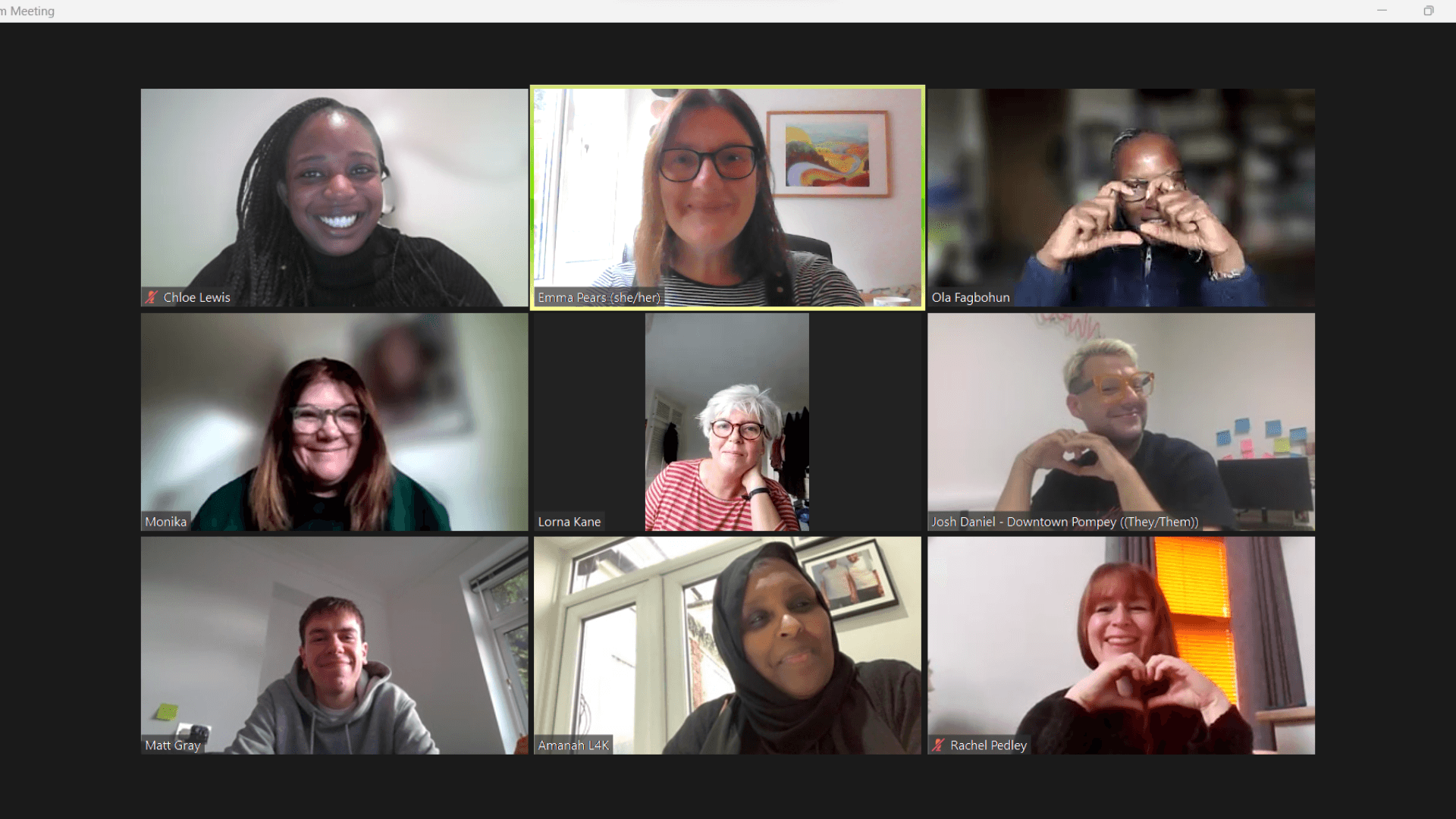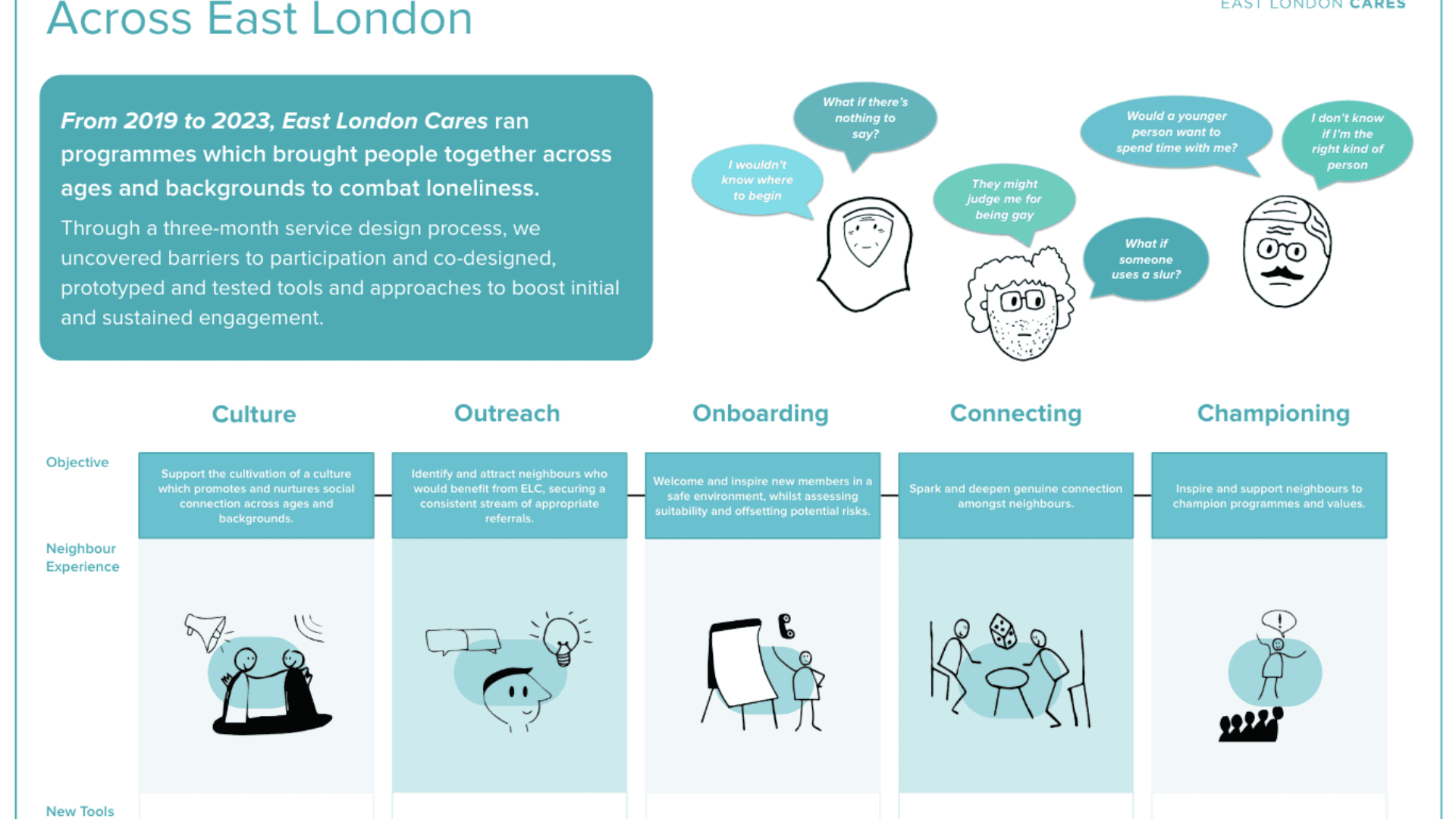
Something to share and something to learn
Posted by The Cares Family on 13th June 2019
Please note: this post is 70 months old and The Cares Family is no longer operational. This post is shared for information only
“You are my friend. You're talking about Syria and your mother. I'm also worried about my mother, so we talk about it. That makes us come closer. Your story makes me sad, and makes us closer.”
It’s Saturday morning at 10am, and four women (and a baby) are outside the Hackney Museum chatting away while they wait to be let in. They all come here every week, so when the door opens they make themselves a drink and take a seat in the circle, only to get up immediately when someone else arrives to give them a hug and welcome them to the group – whether they’ve been before or not. When the circle is full and there’s a loud buzz of conversation in plenty of different accents and intonations of English, the session begins. There are now more than 20 women in the circle: women who are refugees, asylum seekers, British; migrants from Europe and Africa and Asia and Latin America – but those labels are completely irrelevant here. Xenia welcomes all women.
“Because I am from another country, I'd like to meet people from other countries, so we can exchange opinions. I've been coming for a long time so I meet new people. When new people come to the UK life is difficult, so I want to help others who are new here.”
The first thing we do at a session is introduce Xenia because, as a drop-in workshop, there are always new faces in the circle. We explain that it means 'reciprocal hospitality, love and respect between hosts and guests' (a concept borrowed from the ancient Greeks); we say that everyone is here to help, so it’s perfectly fine if you make mistakes with your English; we ask fluent English speakers to talk slowly and clearly and in plain language; and we remind everyone that we’re all from different backgrounds so it’s OK to disagree, as long as we disagree respectfully. We then break into smaller groups – each with some women learning English and some who speak fluent English – and this is where conversation and connection really flourish, guided by the theme of the day and creative activities and objects.
“I have lots of friends at Xenia. We are meeting every Saturday at Hackney Museum at 10am until 1pm. We discuss different topics. We have different levels of English, so we help each other and respect each other. Therefore, we become good friends.”
Since its first session, which ran as an experiment as part of Antiuniversity Now in June 2016, Xenia has been facilitating welcoming, open and safe spaces for women to build relationships across perceived divides of language and nationality. We never differentiate based on immigration status or citizenship – all participants come as either English speakers or English learners. Many English-speaking participants come to Xenia because they want to volunteer, but the model breaks down the hierarchical boundary between volunteers and beneficiaries – we still follow Antiuniversity Now’s central ethos: ‘everyone's a teacher, everyone's a student, everyone's welcome’.
“At Xenia there is no teacher. If you cannot explain a word or idea completely, someone else will help you explain. We speak slowly and if we don't understand a word we ask, we take our time.”
When you walk into the room as a fluent English speaker, you are welcomed in exactly the same way as someone learning English – with warmth. There will be moments when you are helping to explain an activity or the meaning of words; and there are other times when you’ll be taught how to make coffee like they do in Turkey; or listening to someone tell you which of their family members are still in Eritrea, while simply helping them find the words in another language to express what is important to them. Likewise, as an English learner, one moment you’ll be taking notes on new vocabulary and the next you’ll be explaining Iranian politics, giving advice about relationships or telling someone about what you used to do for work back home. No matter what inequalities exist outside Xenia, within these sessions everyone participates as equals – recognising difference in a way that lets connection flourish.
“We learn English, talk about our experiences. Real meaningful conversation, you can discuss something more interesting, you can try to express yourself more confidently.”
While so much of Xenia is about learning English, it is distinct from formal ESOL (English for Speakers of Other Languages) in that it does not lead to qualifications and is purely about speaking and listening – there is no structured teaching. Formal ESOL funding has been cut by 60 per cent since 2009, which has had a disproportionate impact on women’s ability to learn English – particularly for those who have low literacy, little experience of formal learning, or who need childcare in order to attend classes. ESOL qualifications are an important part of most learners’ progression – particularly to employment – but opportunities to practise English, by having meaningful conversations with fluent speakers, are also vital. Taking place in a community setting rather than a classroom – with the main focus on expression and connection rather than vocabulary and grammar – the conversations can be led much more by the women themselves which leads to a different kind of learning.
“For speaking in Xenia it’s better than school and classes, it’s no stress. Mixed cultures, we can learn all cultures. When I came first time, little of speaking. Now I speak much more. Now when I speak with someone I feel happy because finally I understand. Very helpful to have British people [at Xenia] and hear how they speak but slowly and clearly.”
Sessions are always themed and structured (though going off course is always OK!) and the topics are engaging to participants regardless of their fluency. Rather than focusing on what vocabulary or grammar participants will learn and then finding activities to fit, we gather suggestions from participants as to the themes they might find interesting, then design activities that will make that theme accessible for all – whether it’s New Year’s Resolutions, Mothers and Motherhood, Women We Admire, or Rights and Responsibilities.
Basing the sessions in a local museum means that we can use objects and archives to help navigate conversations, helping participants to feel a part of the heritage of their local community. Having the opportunity to discuss interesting topics with a diverse group of women – often using creative activities, stories and objects to navigate complex themes – is fascinating for everyone, whether you are there to practise English, or to hear a new perspective. We need more of that – more spaces to listen to different perspectives as equals and to try to understand one another respectfully – to help us all to create more welcoming and inclusive communities.
Theodora Cadbury is the Founder of Xenia, a programme promoting women-led social integration and language learning in east London. She is also ESOL Coordinator in the Social Integration Team at the Greater London Authority.
This article is part of the pamphlet Finding connection in a disconnected age: stories of community in a time of change, published in partnership with Nesta.


